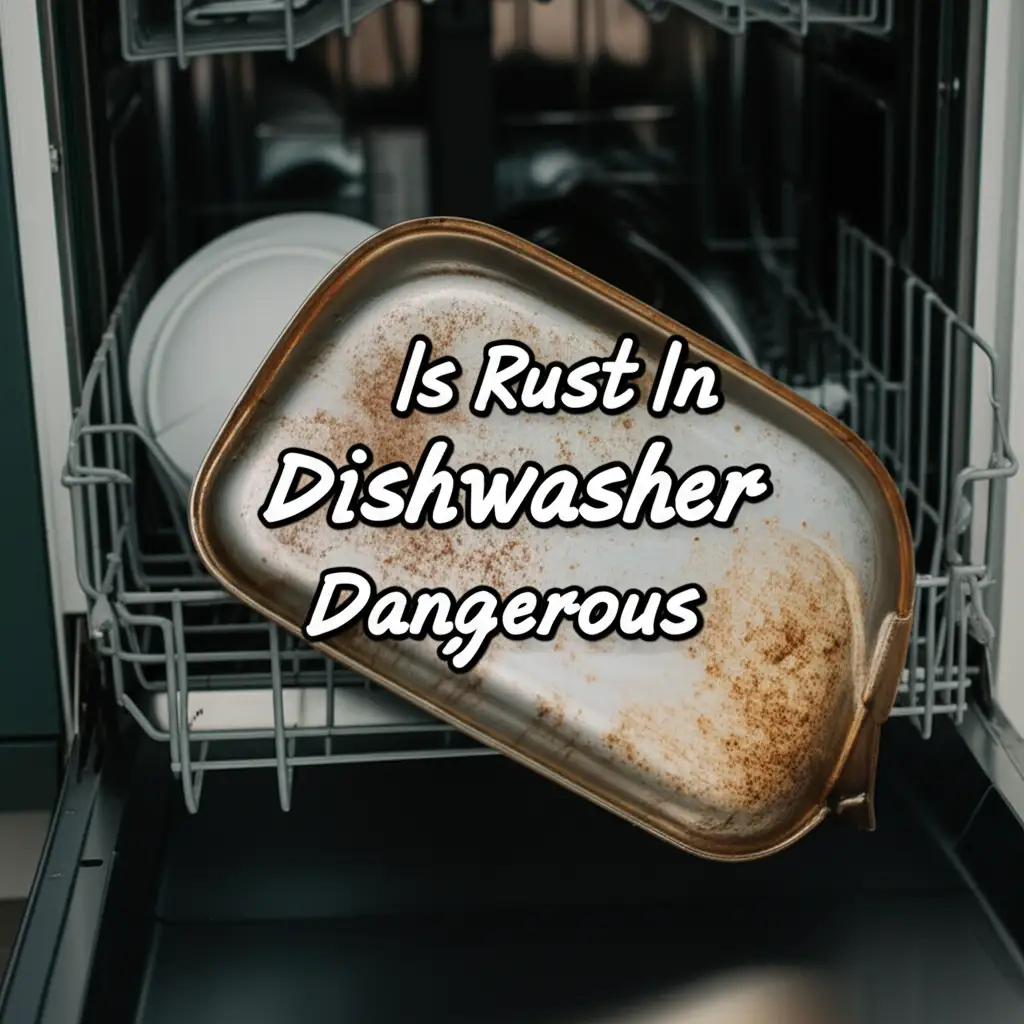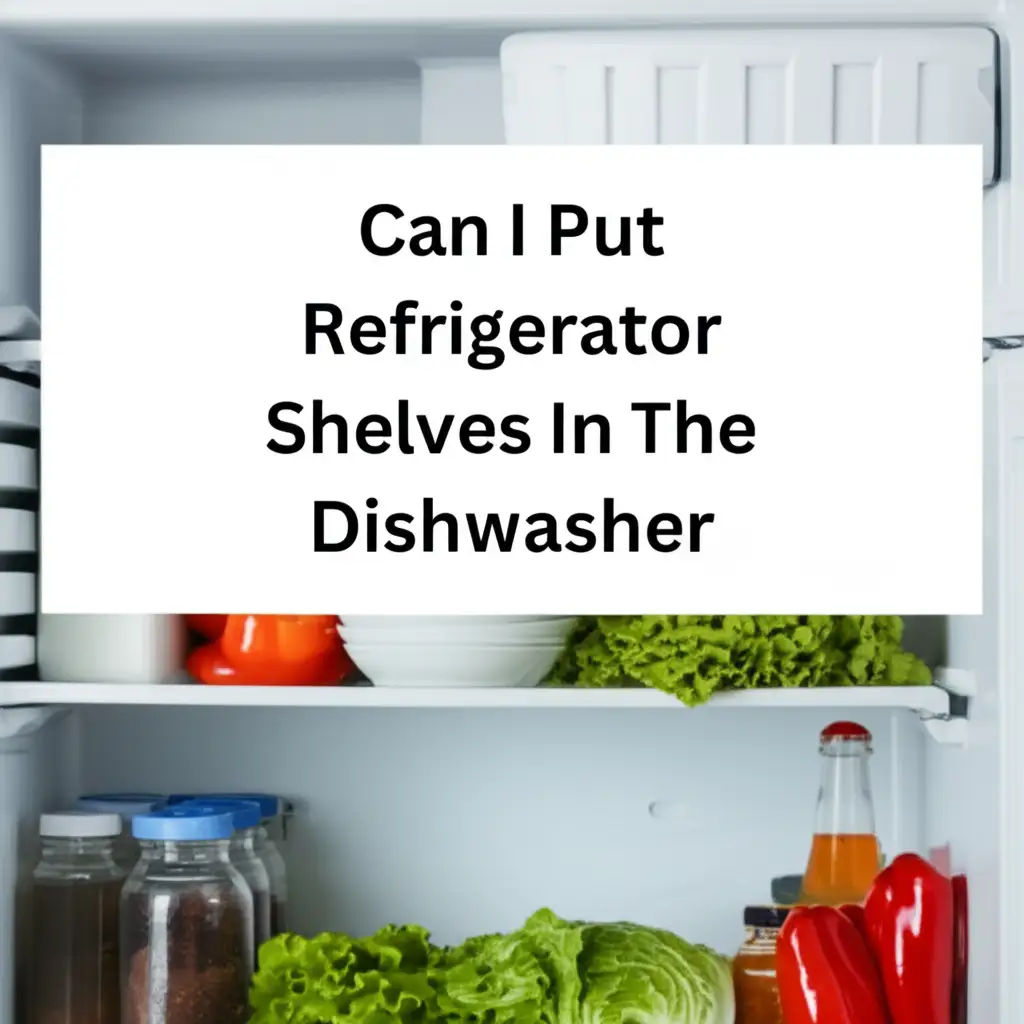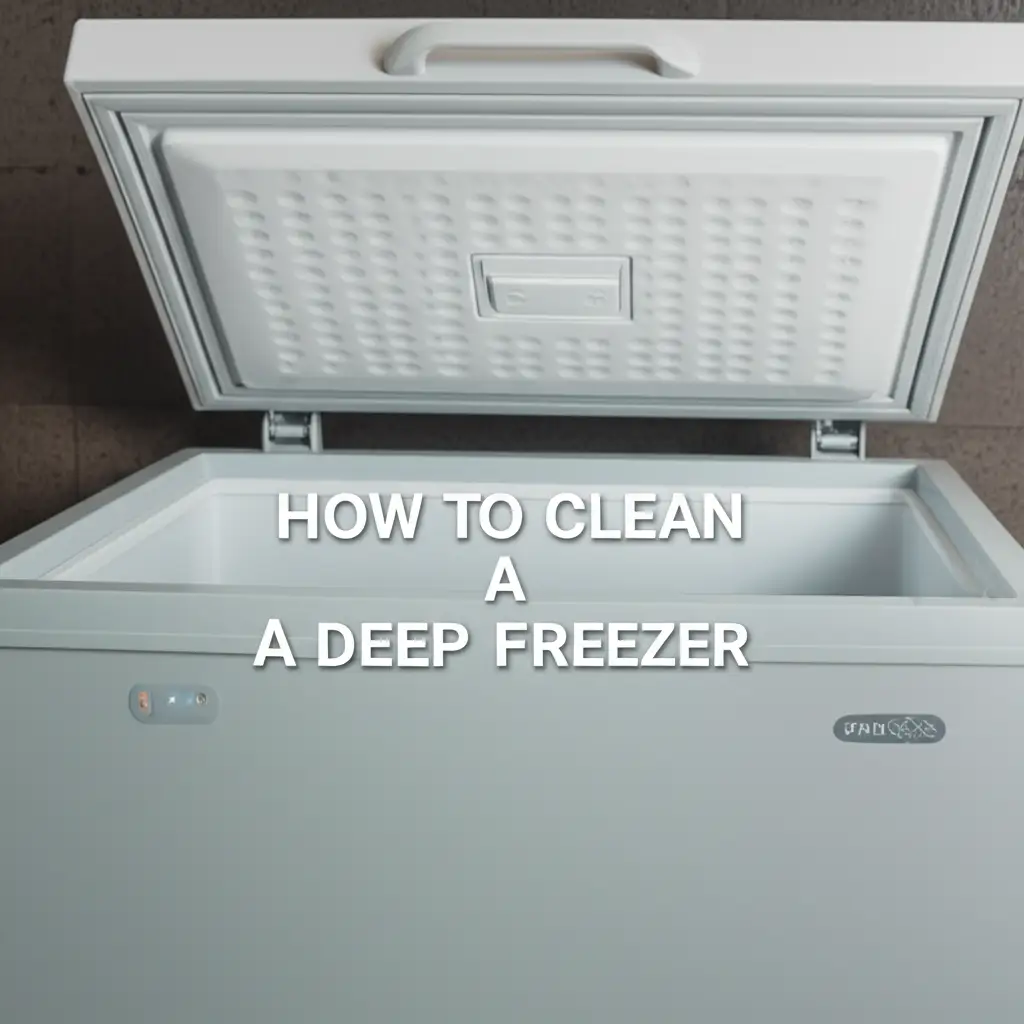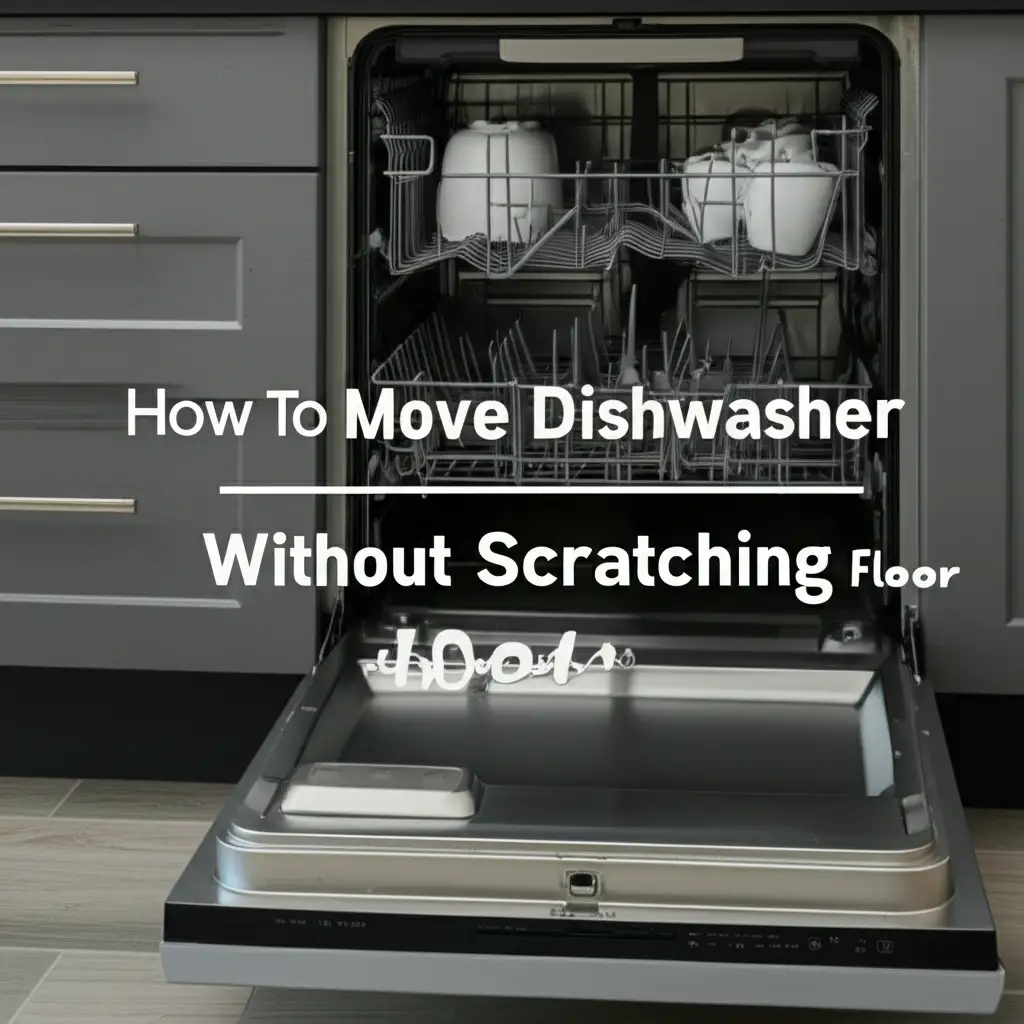· Mason Everett · Home Appliance Care · 18 min read
Is Rust In Dishwasher Dangerous

Is Rust in Your Dishwasher Dangerous? Understanding the Risks
You open your dishwasher, expecting sparkling clean dishes. Instead, you find unsightly orange or brown stains. This sight can be alarming. Many homeowners face the issue of rust in their dishwasher. It makes you wonder, “Is rust in dishwasher dangerous?” This common household problem raises questions about health risks, appliance integrity, and overall cleanliness.
Rust is a natural corrosion process. It happens when iron or its alloys react with oxygen and water. In a dishwasher, this interaction is very common. The appliance has water, heat, and metal parts. These conditions create a perfect environment for rust to form. Understanding where rust comes from and its potential effects is important. This article will explore the dangers of dishwasher rust. We will discuss its causes and effective removal methods. You will also learn how to prevent it from coming back. Let’s make your dishwasher and dishes safe again.
Takeaway
- Rust in your dishwasher is generally not highly toxic if ingested in small amounts, but it is not safe or desirable.
- It indicates a problem with your dishwasher or water quality that needs attention.
- Rust can stain dishes, damage the dishwasher, and affect cleaning performance.
- Identifying the source of the rust is key to effective removal and prevention.
- Regular maintenance and proper loading prevent rust and ensure cleaner dishes.
Is Rust in Dishwasher Dangerous? A Clear Answer.
Rust in a dishwasher is not immediately life-threatening. Small amounts of ingested rust are not highly toxic to humans. However, rust indicates a problem. It can stain dishes, reduce appliance efficiency, and potentially harbor bacteria. You should address rust promptly to maintain a hygienic kitchen.
Understanding Rust in Your Dishwasher
Rust is a reddish-brown flaky coating. It forms on iron or steel when these metals react with oxygen and moisture. This process is called oxidation. In a dishwasher, various components contain metal. These parts are constantly exposed to water and detergent. Over time, rust can develop on these surfaces.
Identifying the type of rust you see helps in fixing the problem. Surface rust often appears as small spots. These spots can come from external items. Internal rust comes from the dishwasher itself. Common areas for rust include the dish racks, screws, and heating element. Even the inner tub can show signs of rust if its protective coating is compromised. Knowing what rust looks like helps you diagnose the issue.
What Causes Rust Formation?
Several factors contribute to rust inside a dishwasher. One major cause is damaged or worn-out dish racks. These racks have a vinyl coating. This coating protects the metal underneath. When the coating chips or cracks, the metal beneath becomes exposed to water. This leads to rust. Another factor is iron in your water supply. If you have hard water with high iron content, it can cause rust stains. These stains appear on dishes and the dishwasher interior. Poor drainage or standing water can also promote rust. Even certain types of detergents, especially those that are highly abrasive, can contribute to the problem by eroding protective layers over time.
Common Places to Find Rust
Rust often appears in predictable spots within a dishwasher. You will typically find it on the tines of the dish racks. These small prongs hold your dishes. They are prone to wear and tear. The screws that hold various parts together can also rust. Sometimes, you might see rust around the heating element at the bottom of the tub. This element heats the water. It is usually made of metal. Check the corners and edges of the door. Water can pool there. This creates prime conditions for rust. Even the inner tub itself, if made of stainless steel with a damaged passivation layer, can develop rust spots.
Is Rust in Dishwasher Dangerous? Health Concerns Explored
When you see rust in your dishwasher, a primary concern is health. Is it safe to eat food from dishes washed in a rusty appliance? The good news is that rust itself, in the small amounts found in a dishwasher, is not highly toxic. It is mostly iron oxide. Our bodies actually need iron. However, getting iron from rust is not the safe or intended way.
Ingesting rust could lead to mild stomach upset. This is rare and typically requires consuming a larger amount. The main danger is not the rust itself. It is what the rust indicates. Rust shows that your dishwasher is deteriorating. It also suggests that your dishes are not getting as clean as they should be. This can lead to other, more significant problems.
Potential Health Risks from Rusty Dishes
While direct rust poisoning is unlikely, there are still risks. Rusty dish racks can leave rust flakes on your dishes. These flakes might transfer to your food. Consuming small bits of rust is generally harmless. However, it is not something you want. It compromises the cleanliness of your kitchenware. Over time, persistent rust could indicate a build-up of bacteria. A rusty environment is not sterile. Bacteria and other microbes can thrive in these conditions. This means your “clean” dishes might not be truly sanitary.
Furthermore, a rusty dishwasher might not clean effectively. The rust can clog spray arms or filters. This prevents proper water circulation. This leaves food particles and detergent residue on your dishes. Such residues can lead to digestive issues or allergic reactions in sensitive individuals. It is crucial to maintain a clean and rust-free appliance. This ensures your dishes are hygienic and safe for use. Addressing rust protects your health and your family’s well-being.
Common Causes of Dishwasher Rust
Rust in a dishwasher does not appear out of nowhere. There are specific reasons why it forms. Understanding these causes helps you tackle the problem effectively. Identifying the root cause is the first step. It ensures your efforts to remove rust are successful and lasting. Many factors contribute to rust formation. Some are easy to spot, others require a closer look.
Damaged Dishwasher Racks
Dishwasher racks are a common source of rust. These racks are typically made of metal wire. They have a plastic or vinyl coating. This coating protects the metal from water and detergent. Over time, this coating can chip, crack, or wear away. This exposes the metal underneath. Once exposed, the metal quickly corrodes and forms rust. Heavy pots, sharp utensils, or even frequent use can damage the coating. Check your racks regularly for any signs of chipping. Even small nicks can lead to significant rust problems. Replacement of damaged rack tines or a full rack can often solve this problem.
High Iron Content in Water
Your home’s water supply can be a major contributor to dishwasher rust. Water with high iron content is often called “hard water.” When this water runs through your dishwasher, the iron can oxidize. This leaves behind reddish-brown rust stains. These stains appear on the dishwasher’s interior. They also show up on your dishes. This type of rust is distinct from rust caused by damaged racks. It usually appears as a general discoloration rather than specific spots. If you suspect high iron in your water, consider testing it. A water softener or an iron filter can help mitigate this issue. This will protect not just your dishwasher, but all your appliances.
Improper Use of Detergent or Rinse Aid
Using too much detergent can be counterproductive. Excessive detergent can be corrosive. It can strip away protective coatings inside the dishwasher. This exposes metal components to water and air. Similarly, some harsh detergents might contain ingredients that react with metal. This also promotes rust formation. Not using enough rinse aid can also be a factor. Rinse aid helps water sheet off dishes and surfaces. Without it, water can pool and sit. This increases the chances of rust developing. Ensure you use the correct amount of how much dishwasher powder to use. This helps protect your appliance.
Other Contributing Factors
Several other issues can lead to rust. Items placed in the dishwasher can be culprits. Non-dishwasher-safe items, like cast iron pans or rusty pots, can transfer rust. Small metal bits, like screws or nails, accidentally washed can also cause issues. Dishwasher components, such as the heating element or spray arms, can corrode if their protective layers fail. Poor drainage, leading to standing water, also creates a rust-friendly environment. Ensure your dishwasher drains properly. If you suspect your appliance is not draining, you may need to learn how to get the dishwasher to drain. Lastly, a lack of regular cleaning allows mineral deposits to build up. These deposits can trap moisture and accelerate corrosion.
Identifying Rust and Its Impact on Dishes
Spotting rust in your dishwasher is usually straightforward. However, knowing exactly where it comes from and how it affects your dishes requires a keen eye. Rust often manifests in distinct ways. It can give clues about its origin. Once you find rust, you will notice its effects on your dishware. Understanding these impacts helps you prioritize removal. It also motivates you to take preventative steps.
Where to Look for Rust
Start your inspection by looking at the dish racks. Specifically, check the tines. These are the prongs that hold plates and bowls. If the vinyl coating is chipped, you will likely see rust underneath. Next, examine the screws and fasteners inside the dishwasher. These are often made of metal and can rust. Look at the lower part of the dishwasher tub. Check around the heating element. This large, circular metal component heats the water. Rust can form on its surface. Also, inspect the inside of the door. Pay attention to hinges and edges. Water can collect here and cause corrosion. Don’t forget the filter area at the bottom. Mineral deposits can build up here, contributing to rust if not cleaned regularly. Knowing how often should you clean your dishwasher filter is crucial for this.
How Rust Affects Your Dishes
The most noticeable effect of rust is staining. Rust can transfer from the dishwasher components to your dishes. This leaves behind orange, brown, or reddish spots. These spots are particularly visible on white or light-colored dishes, glasses, and silverware. The stains might appear as small specks or larger blotches. They are often difficult to remove with normal washing. Sometimes, the stains can be permanent, especially on porous materials.
Beyond aesthetics, rust can also impact the cleanliness of your dishes. If rust flakes off, it can redeposit onto your dishes. This means your “clean” dishes are not truly clean. Rust can also clog the spray arms. It can block the jets of water. This prevents proper cleaning and rinsing. Dishes might come out with food particles or detergent residue. This makes them unhygienic. In severe cases, rust can even scratch delicate dishware. It can damage coatings on non-stick pans if loose flakes get trapped. This highlights the importance of addressing rust quickly.
Effective Strategies for Rust Removal from Your Dishwasher
Finding rust in your dishwasher can be frustrating. However, many effective methods exist to remove it. You can often restore your appliance to its rust-free state. The key is to choose the right strategy based on the severity and location of the rust. Always ensure the dishwasher is empty before you begin cleaning. Protecting yourself with gloves is also a good idea.
Using Commercial Dishwasher Rust Removers
Several commercial products are designed specifically for dishwasher rust. These cleaners usually come in powder or liquid form. They contain strong acids or chelating agents. These chemicals dissolve rust and mineral deposits. To use them, simply follow the package directions. Typically, you place the cleaner in the detergent dispenser. Then, you run an empty hot water cycle. These products are effective for widespread rust or stubborn stains. Always ensure proper ventilation when using chemical cleaners. They can be very effective at revitalizing a rusty interior. For general cleaning, learning how to use dishwasher cleaner can be highly beneficial.
Natural Rust Removal Methods
For those who prefer eco-friendly solutions, natural options are available. White vinegar is a popular choice for rust removal. Its acidic nature helps break down rust. Pour two cups of white vinegar into a dishwasher-safe bowl. Place the bowl on the bottom rack of an empty dishwasher. Run a hot water cycle. The vinegar steam will work to dissolve rust and mineral deposits. You can also spray stubborn spots directly with vinegar. Let it sit for a while before scrubbing. This method is safe and effective. You can learn more about where to put vinegar in dishwasher to clean.
Citric acid is another natural alternative. It is often found in the cleaning aisle. Place 3-4 tablespoons of citric acid powder in the detergent dispenser. Run an empty hot water cycle. Citric acid is especially good at removing hard water stains and rust. Baking soda can also be used as an abrasive for scrubbing small rust spots. Make a paste with water and apply it to the rust. Scrub gently with a non-abrasive pad. Rinse thoroughly after cleaning. Some people even explore if they can i use oxiclean in my dishwasher for rust, though it’s typically for stains.
Tackling Rust on Dishwasher Racks
Rust on dish racks is a common problem. For small spots, you can use a rust eraser or fine-grit sandpaper. Gently rub the rusted area until the rust is gone. After removing the rust, you must seal the exposed metal. Special vinyl repair paint or liquid vinyl can be used. This creates a protective barrier. It prevents new rust from forming. For severe rack rust, replacing the racks might be the best option. Many manufacturers sell replacement racks. This can extend the life of your dishwasher. It also prevents rust transfer to dishes.
Preventing Future Dishwasher Rust: Maintenance Tips
Once you have removed rust from your dishwasher, the next step is prevention. Regular maintenance and proper habits can keep rust from returning. A proactive approach saves you time and money in the long run. It also ensures your dishes remain clean and your appliance functions efficiently. Preventing rust involves a combination of routine checks and smart usage.
Repair or Replace Damaged Dish Racks
Damaged dish racks are a primary cause of rust. The protective coating on the rack tines can chip. This exposes the metal underneath. Inspect your racks regularly. Look for any signs of wear, chips, or exposed metal. For small chips, you can use a dishwasher rack repair kit. These kits contain vinyl paint or caps to seal the exposed metal. If the damage is extensive, consider replacing the entire rack. Investing in new racks is often more cost-effective than dealing with recurring rust issues. This simple step prevents a significant source of rust.
Manage Water Quality
Hard water, especially water with high iron content, is a major contributor to dishwasher rust. If you have hard water, consider installing a water softener for your home. A water softener removes minerals like iron and calcium. This prevents them from depositing on your dishes and dishwasher components. Alternatively, you can use a rust-removing dishwasher detergent or an additive. Some products are formulated to combat iron stains specifically. Even a simple iron filter on your water line can make a big difference. Testing your water can help you determine the best solution for your home.
Proper Loading and Drying Techniques
How you load your dishwasher impacts rust prevention. Avoid placing rusty items, like cast iron pans or old baking sheets, directly into the dishwasher. These items can transfer rust to your appliance and other dishes. Ensure proper spacing between dishes. This allows water and detergent to circulate freely. Good circulation helps prevent standing water. Standing water can promote rust. After a wash cycle, open the dishwasher door slightly. This allows steam to escape. It helps the interior dry completely. Many modern dishwashers have a “heated dry” or “extra dry” setting. Use these features if your dishwasher is prone to moisture retention. Proper drying reduces the likelihood of rust formation.
Regular Cleaning and Maintenance
Routine cleaning of your dishwasher is essential for rust prevention. Clean the dishwasher filter regularly. Food particles and mineral deposits can accumulate there. This can lead to poor drainage and rust. Knowing how often should you clean your dishwasher filter is a crucial part of maintenance. Run an empty cycle with a dishwasher cleaner once a month. Use a commercial cleaner or a natural solution like vinegar or citric acid. This helps remove mineral buildup and prevents rust. Wipe down the interior surfaces and door seals. Use a damp cloth to remove any grime or residue. This keeps the environment clean and inhibits rust. Regular maintenance extends the life of your appliance. It also keeps it performing at its best.
When to Call a Professional or Replace Your Dishwasher
Sometimes, rust in your dishwasher goes beyond simple fixes. There are situations where home remedies and routine maintenance are not enough. Knowing when to call a professional or consider a replacement can save you headaches and money. Ignoring severe rust can lead to bigger problems. It might even compromise the safety of your home.
Severe Rust or Structural Damage
If you notice widespread rust that seems to be coming from the inner tub itself, it could be a sign of structural damage. Rust on the main internal components, beyond the racks, indicates a more serious issue. For instance, if the stainless steel liner of your dishwasher has extensive pitting or rust holes, it means its protective layer has failed. This level of damage often requires professional assessment. A technician can determine if the rust is reparable. They can also tell you if it affects the structural integrity of the appliance. Attempting to fix severe internal rust yourself might cause more damage. It could also void your warranty.
Persistent Rust Issues
You have tried all the rust removal and prevention methods. You have cleaned your dishwasher thoroughly. You have addressed water quality issues. Yet, the rust keeps returning. This persistent problem suggests an underlying issue that you cannot fix easily. It could be a faulty component. It might be a design flaw in your specific dishwasher model. In such cases, a professional appliance repair technician can diagnose the root cause. They have specialized tools and knowledge. They can identify hidden leaks or internal defects that are contributing to the rust. If the problem is systemic, they can advise on the best course of action. This could include complex repairs or suggesting a replacement.
When Replacement is the Best Option
There comes a point when repairing an old, rusty dishwasher is no longer economical. If your dishwasher is more than 8-10 years old, it might be nearing the end of its lifespan. Repairing extensive rust damage on an aging appliance might cost more than buying a new one. Consider the cost of repairs versus the cost of a new, energy-efficient model. Newer dishwashers are often more water and energy-efficient. They come with better rust-resistant materials and improved cleaning technologies. If rust is a symptom of general wear and tear, or if parts are hard to find, a replacement could be the smart choice. This ensures you have a reliable, rust-free appliance. It protects your dishes and your peace of mind.
FAQ Section
Is dishwasher rust a health hazard?
Small amounts of rust in a dishwasher are not highly toxic. Ingesting tiny rust flakes is unlikely to cause serious harm. However, rust indicates an unhygienic environment. It can leave deposits on dishes and affect cleaning performance. While not acutely dangerous, it’s not desirable.
How do I remove rust stains from my dishes?
You can remove rust stains from dishes using a paste of baking soda and water. Apply it and let it sit. Then, gently scrub the stains off. White vinegar or lemon juice can also dissolve rust. Soak the stained dishes in one of these solutions. A non-abrasive scrub pad helps remove stubborn marks.
What causes orange rust in my dishwasher?
Orange rust often comes from damaged dishwasher rack tines. The protective vinyl coating wears off. This exposes the metal beneath to water and air, leading to rust. High iron content in your tap water can also cause orange-brown stains throughout the dishwasher.
Can rust damage my dishwasher?
Yes, rust can damage your dishwasher over time. It compromises the protective coatings on racks and internal components. Severe rust can lead to pitting, holes, and even structural weakening of the appliance. This reduces its lifespan and efficiency.
Is it safe to use a dishwasher with rust?
It is generally not recommended to regularly use a dishwasher with visible rust. While not acutely dangerous, rust can transfer to your dishes. It can also reduce the dishwasher’s cleaning effectiveness. Address the rust promptly to ensure hygienic dishwashing.
Does hard water cause dishwasher rust?
Yes, hard water can cause dishwasher rust. Water with a high mineral content, especially iron, leaves behind mineral deposits. These deposits can appear as rust-colored stains. The minerals can also react with metal components, accelerating corrosion and rust formation.
Conclusion
Finding rust in your dishwasher can be concerning. You might wonder, “Is rust in dishwasher dangerous?” While small amounts of rust are not typically toxic, they signal a problem. Rust compromises your appliance’s hygiene and performance. It can stain your clean dishes and indicate underlying issues. Addressing rust promptly protects your health and extends your dishwasher’s life.
We explored the common causes of rust. These include damaged racks, hard water, and improper detergent use. We also discussed how to identify rust and its impact on your dishware. You learned effective removal strategies. These range from commercial rust removers to natural solutions like vinegar and citric acid. Prevention is key. Regular maintenance, managing water quality, and proper loading techniques can keep your dishwasher rust-free. Remember to repair or replace damaged racks. If rust is severe or persistent, a professional assessment might be necessary. Keep your dishwasher in top condition. This ensures sparkling clean dishes and a healthy kitchen environment. Take action today to banish rust from your home appliance.





